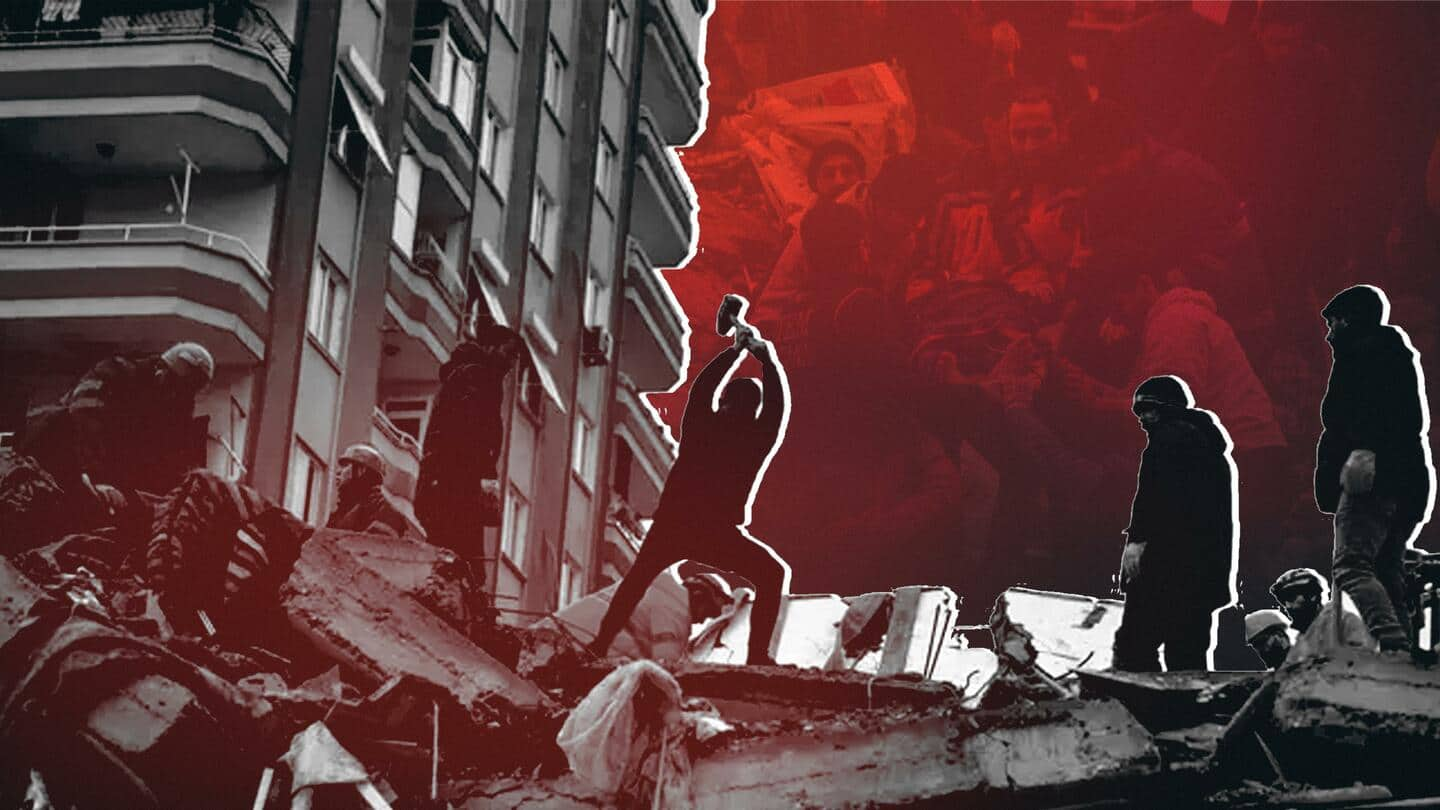
Death toll from earthquake in Turkey and Syria nears 8,000
What's the story
The death toll from a series of earthquakes that shook Turkey and Syria on Monday is approaching 8,000, reports said. Officials confirmed about 5,894 deaths in Turkey and 2,032 in Syria. The numbers are expected to rise as many are feared buried under the rubble of collapsed buildings. Extending help to both countries, India on Tuesday sent relief material, equipment, personnel, and medical teams.
Context
Why does this story matter?
Five major earthquakes have jolted southeastern Turkey and neighboring Syria since Monday. As many as 100 aftershocks have hit the region since the first quake. The first earthquake, which was of 7.8 magnitude, is said to be one of the deadliest in a decade. Notably, Turkey sits on three major tectonic plates—African, Arabian, and Eurasian—making it one of the world's most active earthquake zones.
Twitter Post
WHO expects death toll to reach 20,000
The worst disaster in almost a century has impacted 13.5 million people in an area covering roughly 450 km. Resources are stretched thin. Latest death toll exceeds 5,400 people.
— Hümeyra Pamuk (@humeyra_pamuk) February 7, 2023
Below footage is from Hatay, among the hardest-hit provinces. pic.twitter.com/RJJvlWDE2l
Turkey
State of emergency declared for 3 months in Turkey
Turkish officials informed that more than 32,000 people were injured, and a state of emergency has been declared for the next three months in 10 provinces affected by the earthquake. Turkey's disaster management authority, AFAD, said it received reports about the collapse of 11,342 buildings and said it could confirm the collapse of 5,775. Over 8,000 people were rescued from the debris.
Damage
Cold and rain impeding rescue operations
Around 3,80,000 Turkish citizens have sought refuge in government shelters and hotels. Near-freezing temperatures in Turkey and rain in Syria have made rescue operations difficult. Millions of Syrian refugees lived in shoddy accommodations in Turkey's Gaziantep, which is near the epicenter of the first earthquake, making the disaster worse as the maximum damage is dealt to the most destitute.
Relief
India sends 6 tons of relief material to Syria
Among Syria's more than 2,000 deaths, 812 were reported from government-held areas. The country has been torn by civil war for the last 12 years. India has sent over six tons of relief material to Syria, which includes three truckloads of general and protective gear, emergency use medicines, syringes, and equipment, including ECG machines, monitors, and other essential medical items.